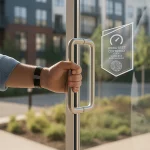UPD Ofcom UK Propose to Open 900MHz, 800MHz and 2100MHz for 4G
As expected the UK communications regulator, Ofcom, has today proposed to allow 4G (LTE) superfast Mobile Broadband services to also be delivered over the 900MHz, 1800MHz (EE are at present the only one allowed to do this) and 2100MHz radio spectrum bands that are currently used for a mix of existing 2G and 3G services.
The regulator reports that Vodafone and Three UK specifically requested that Ofcom “remove the regulatory constraint” on the use of 4G technology in their spectrum licences (900MHz, 1800MHz and 2100MHz in the case of Vodafone and 2100 MHz in the case of Three UK).
Advertisement
In addition, O2 and Vodafone have also requested that they be allowed to increase the maximum permitted base station transmit power at 900MHz by 3 decibels (3dB) for 3G use.
Ofcoms Statement
“We propose in this consultation to liberalise all mobile licences in the 900 MHz, 1800 MHz and 2100 MHz bands to permit the deployment of 4G services (where such licenses have not already been liberalised). This will align the permitted technologies across all mobile spectrum licences, including the existing licences at 900 MHz, 1800 MHz and 2100 MHz and the licences to be awarded by auction in the 800 MHz and 2.6 GHz bands.”
The move has been on the cards for some time, ever since the EU paved the way for it over two years ago with new regulation, although the complicated and competitive nature of the UK market has made it difficult to pursue until now.
Variation of 900 MHz, 1800 MHz and 2100 MHz Mobile Licences
http://stakeholders.ofcom.org.uk/consultations/variation-900-1800-2100/summary
UPDATE 2:16pm
In related news the £150m Mobile Infrastructure Project (MIP), which was setup to help the “5 to 10% of consumers and businesses that live and work in areas of the UK where existing mobile coverage is poor or non-existent” (i.e. requires mobile operators to build new masts), has moved a step closer after the government and Mobile Network Operators (MNO) reached an agreement on how the scheme will be financed. So far Ofcom claims to have identified 80,484 premises in complete “not spots“.
Advertisement
The government now claims to have “capital funding available to take forward building masts with power and network connections” and a procurement is underway to identify a MIP Provider to build, own and operate the infrastructure (originally Three UK was going to do it). Mobile operators have also agreed to meet the running costs for the sites for their operating life.
Mark is a professional technology writer, IT consultant and computer engineer from Dorset (England), he also founded ISPreview in 1999 and enjoys analysing the latest telecoms and broadband developments. Find me on X (Twitter), Mastodon, Facebook, BlueSky, Threads.net and Linkedin.
« UK ISP BT Tops 6.56 Million Broadband Subscribers as Fibre Access Grows
















































Comments are closed